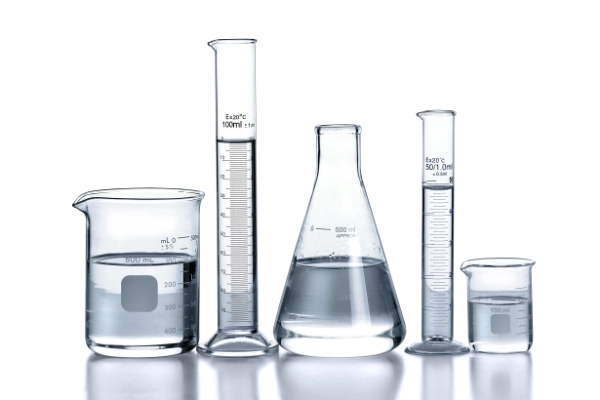Today’s semiconductor processes face high reliability and yield expectations. Semiconductor devices are expected to deliver ever-increasing function in smaller sizes, while the performance of the chip becomes higher.
The new standard in purity
Metal contamination, even in smallest concentrations, leaves a huge impact on chip performance, therefore production requirements have become tightened. While years ago contamination of 100 ppb and even 1 ppm were acceptable, ultra-pure materials with less than 10 ppb have become today’s “new normal” to stay ahead of competition.
Producing tiny, complex chips needs a multiple-step sequence of photo lithographic and chemical process steps to create electronic circuits on wafers. Continuous and holistic optimization of materials, interfaces, processes, and techniques is necessary to produce microprocessors and memory chips with smaller structures on the chip. To achieve high process yields, the need to avoid particle contamination is of paramount importance.
Decreasing sizes require high purity materials
In the past, when feature widths were greater than 10 micrometers, purity was not as significant a concern as it is today. Infrastructural measures, such as quality of materials and clean room production environments, were sufficient to produce reliable chips.
Today’s chip structures are reaching line widths with 7 nanometers resolution. With atoms two to three nanometers wide, even a single atom could contaminate a chip. Therefore, the production in clean rooms had to become even stricter. Smallest particles, which could rest on the wafer, could cause defects. In terms of equipment and materials, from the process chamber to the lithographic process, the entire industry shifted first to high purity, then toward highest purity and now to ultra-high purity, i.e., from ppm to ppb and eventually to ppt levels of metal contaminants.
The importance of a reliable partner
To acquire such high purity chemicals and to efficiently utilize time and resources, a reliable partner is necessary. Since production batches do not typically involve high volumes, many large chemical companies are less inclined to produce these materials, while other smaller ones do not have the advanced expertise, infrastructure, and know-how to develop them.
As the electronic chemicals leader, Heraeus Epurio possesses the expertise to provide high purity as its core competence and is able to remove metal contamination on an atomic scale. We have the necessary chemical processes and production knowledge, coupled with years of experience from having grown alongside the rising demands of the industry. This allows us to offer reliable ultra-pure organic chemicals, such as PAGs, polymers and monomers, to suit our customers’ needs.


